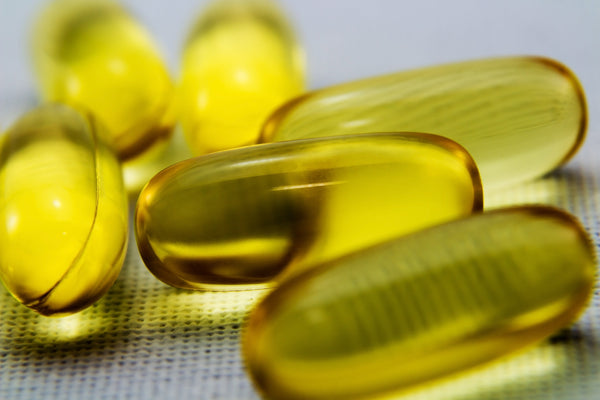
We often associate ashwagandha as the miracle Ayurvedic herb known to keep stress and anxiety at bay. But there’s apparently a lot more to this medicinal herb than meets the eye. Want to know some fascinating facts about Ashwagandha that you don’t know about? Well, what are you waiting for? Let’s get started.
What is Ashwagandha?
Known as Indian ginseng, Ashwagandha, is a herb that has been used for its medicinal properties in both Ayurvedic and Chinese culture for thousands and thousands of years. Ashwagandha, in Sanskrit, literally means ‘smell of the horse’. It is associated with both a unique smell and an ability to enhance strength. This explains why this medicinal herb has predominantly been used as an adaptogen, which is a substance used to help the body manage stress. Scientifically known as Withania somnifera, ashwagandha is a small shrub with yellow flowers that is mainly grown in India and North Africa.Health Benefits of Ashwagandha
Ashwagandha is primarily used to manage stress and anxiety, but it has a plethora of other health benefits such as the ability to reduce the risk of arthritis, hypertension, and high blood sugar levels. It also contains antioxidants that help bolster the immune system, keeping all kinds of infections at bay.Ashwagandha is mainly consumed in the form of capsules, tablets, powder or tea. Furthermore, ashwagandha essential oil, extracted through steam distillation from the roots of the shrub may be used to reduce stress, improve sleep, boost cognitive functions, and relieve body pain, as per anecdotal evidence.
Let us look at some of ashwagandha’s most popular health benefits.
1. Immunity-boosting properties
Ashwagandha is known to bolster the immune system by enhancing the body’s ability to defend against infections and diseases. This it does by boosting the cell-mediated immunity. Additionally, it is known for its antioxidant properties that help safeguard the cell from damage caused due to free radical activity. This keeps inflammation at bay and furthermore reduces the body’s risk of developing chronic diseases like type 2 diabetes, arthritis, heart ailments and even cancer. Moreover, its antibacterial properties helps the body fight bacterial and pathogenic infections, thereby strengthening one’s immune system.2. Controls blood sugar levels
Research suggests that ashwagandha is a great remedy for controlling blood sugar levels among those with diabetes. Your main source of energy is the glucose in your blood, which you derive from the food you consume. The pancreas produces a certain hormone known as insulin, which helps the cells in the body absorb glucose from the food and convert it into energy. Those with diabetes, are not able to produce insulin or do so in very small quantities, which then leads to an increase in blood sugar levels.Ashwagandha extract helps to influence the production of insulin and insulin sensitivity among those who have diabetes. It can stimulate and regulate the secretion of insulin in the bloodstream, which further leads to a better management of sugar levels in the blood. Adding ashwagandha supplements to your diet, as per the recommendation of your medical practitioner, will act as a great lifestyle change to better manage your blood sugar levels.
3. Relieves Stress and Anxiety
As already mentioned above, ashwagandha has primarily been used as an adaptogenic herb to better manage stress and anxiety. It is believed to reduce the cortisol levels (stress hormone) in the body. Research shows that a daily dose of 125 mg to 5 grams for anywhere between one and three months, can potentially reduce the stress hormone by 11 to 32 %.If you feel stressed out, a cup of ashwagandha tea will instantly soothe your nerves and help you feel relaxed. Ashwagandha essential oil is additionally used in aromatherapy to calm anxiety and other neural conditions. Most people also like using the oil as an antidepressant to uplift their moods when they feel low and stressed.4. Controls Cholesterol levels and Reduces the Risk of Heart Ailments
We know that ashwagandha has anti-inflammatory properties that inhibit the free radical activity in the body, reducing the risk of chronic diseases, one of which is heart-related diseases. Regularly consuming ashwagandha, either in the form of powdered supplements or tea, helps reduce / manage cholesterol levels in the body, and prevents it from getting deposited in the valves and arteries of the heart, the root cause of cardiovascular ailments like atherosclerosis, stroke, and the like.5. Improves Cognitive Function
Ashwagandha supplements also have the potential to enhance brain function, improve memory and motor skills. It also helps regulate mood and improve performance and productivity. The adaptogenic benefit and stress management ability of Ashwagandha has the potential to slow down the development of neurodegenerative diseases of the brain and nervous system such as Alzheimers and dementia.6. Relieves Pain
Stress and anxiety are the leading causes of body pain. A combination of ashwagandha oil with sesame oil, flaxseed oil, or white sandalwood oil can aid in reducing muscular and neuropathic aches in the body.7. Increases Energy and Endurance
Ashwagandha is a potent herb that helps to improve muscle mass and endurance among those who take its supplements as per the recommended dosage daily. There’s sufficient scientific evidence that corroborates ashwagandha’s potential to increase the red blood and haemoglobin count in the blood. The increase in these counts lead to a rise in the potential of the blood to transport oxygen towards the exercising muscles, thereby improving the body’s aerobic capacity. Several studies show men who consumed ashwagandha showed significant gain in muscle strength along with reduction of fat percentage in the body. So if you are looking for something to enhance the muscle mass and endurance, you know what to have!Final Takeaway
The anti-inflammatory, adaptogenic, relaxing, and antioxidant properties of ashwagandha make it the miracle herb that it’s known to be. It’s a safe supplement for most people to have but it's always best to consult a doctor before beginning with the supplement dosage. Also, you should exercise caution before using it if you’re pregnant or breastfeeding because there isn’t any research available to concur if it’s safe or not.
It’s offered by several supplement manufacturers and retailers, including chemists, health food and online stores. Wellbeing Nutrition offers an immunity boosting product called Daily Greens(DG), that contains ashwagandha along with other farm-fresh superfoods that helps strengthen the body's defense system against all kinds of infections and diseases. All you have to do is drop one tablet of our DG in a cup of water and your immunity-boosting drink is ready!
References:
- Singh N, Bhalla M, de Jager P, Gilca M. An overview on ashwagandha: a Rasayana (rejuvenator) of Ayurveda. Afr J Tradit Complement Altern Med. 2011;8(5 Suppl):208-213. doi:10.4314/ajtcam.v8i5S.9. (https://www.ncbi.nlm.nih.gov/pmc/articles/PMC3252722/)
- Effects of Ashwagandha (Withania somnifera) on VO2max: A Systematic Review and Meta-Analysis, Jorge Pérez-Gómez, Santos Villafaina, José Carmelo Adsuar, Eugenio Merellano-Navarro 3 and Daniel Collado-Mateo, Nutrients Journal, (https://www.mdpi.com/2072-6643/12/4/1119/pdf)
- Ashwagandha (Withania somnifera): Role in Safeguarding Health, Immunomodulatory Effects, Combating Infections and Therapeutic Applications: A Review, Journal of Biological Sciences, 2014, Ruchi Tiwari, Sandip Chakraborty, Kuldeep Dhama, and Saminathan M, (https://www.researchgate.net/publication/259829315_Ashwagandha_Withania_somnifera_Role_in_Safeguarding_Health_Immunomodulatory_Effects_Combating_Infections_and_Therapeutic_Applications_A_Review)
- Udayakumar R, Kasthurirengan S, Mariashibu TS, et al. Hypoglycaemic and hypolipidaemic effects of Withania somnifera root and leaf extracts on alloxan-induced diabetic rats. Int J Mol Sci. 2009;10(5):2367-2382. Published 2009 May 20. doi:10.3390/ijms10052367. (https://www.ncbi.nlm.nih.gov/pmc/articles/PMC2695282/)
- Chandrasekhar K, Kapoor J, Anishetty S. A prospective, randomized double-blind, placebo-controlled study of safety and efficacy of a high-concentration full-spectrum extract of ashwagandha root in reducing stress and anxiety in adults. Indian J Psychol Med. 2012;34(3):255-262. doi:10.4103/0253-7176.106022. (https://www.ncbi.nlm.nih.gov/pmc/articles/PMC3573577/)
-
Sandhu JS, Shah B, Shenoy S, Chauhan S, Lavekar GS, Padhi MM. Effects of Withania somnifera (Ashwagandha) and Terminalia arjuna (Arjuna) on physical performance and cardiorespiratory endurance in healthy young adults. Int J Ayurveda Res. 2010;1(3):144-149. doi:10.4103/0974-7788.72485
(https://www.ncbi.nlm.nih.gov/pmc/articles/PMC2996571/) - Choudhary D, Bhattacharyya S, Bose S. Efficacy and Safety of Ashwagandha (Withania somnifera (L.) Dunal) Root Extract in Improving Memory and Cognitive Functions. J Diet Suppl. 2017 Nov 2;14(6):599-612. doi: 10.1080/19390211.2017.1284970. Epub 2017 Feb 21. PMID: 28471731. (https://pubmed.ncbi.nlm.nih.gov/28471731/)
- Studies of Ashwagandha (Withania somnifera Dunal), Krutika Joshi, Swagata D Tavhare, Kalpesh Panara, Praveen Kumar, International Journal of Pharmaceutical & Biological Archives, (https://www.researchgate.net/publication/303343480_Studies_of_Ashwagandha_Withania_somnifera_Dunal)
- Vijay K. Bharti, Jitendra K. Malik, Ramesh C. Gupta, Chapter 50 - Ashwagandha: multiple health benefits, Editor(s): Ramesh C. Gupta, Rajiv Lall, Ajay Srivastava, Nutraceuticals (Second Edition), Academic Press, 2021, Pages 865-880, ISBN 9780128210383, https://doi.org/10.1016/B978-0-12-821038-3.00050-1. (https://www.sciencedirect.com/science/article/pii/B9780128210383000501)

























